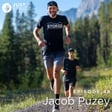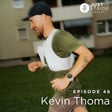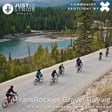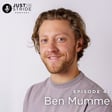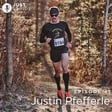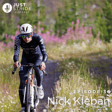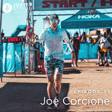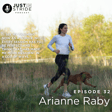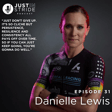
Emily Hawgood on her love for trail running, becoming an endurance athlete, Ironman, athlete coach relationship, finding consistency
One of the things I truly believe in is if you’re passionate about something and you truly love doing it, then you’ll 100% be successful at it. It’s how people make a living doing what they love but nobody said it was easy, you need to put in the work and stay consistent. It takes trying, learning, succeeding and failing to truly make it work, making it all the more rewarding when it goes right. Set a goal but more importantly, draw out a plan to get where you want to go because the only person that can get you there is you.
On this episode of Just In Stride I had a really fun chat with pro ultra trail runner, Emily Hawgood.
Emily grew up on a farm in Zimbabwe and played all sorts of different sports as a kid. She later took a liking to long distance triathlon but with some encouragement from her now coach, turned to running on the trails and she never looked back.
Ultra running became her passion and she now does it professionally. Her results over the years have been impressive and so consistent from race to race, no matter the distance. It’s so clear she loves to run and that passion shines through every time she toes the line. I wouldn’t be surprised to see her finish on the podium at Western States later this year.
-------
Offer from Xact Nutrition: This episode is presented by our friends at Xact Nutrition and they are offering you 15% OFF your order when you use the code JUSTINSTRIDE. So head to xactnutrition.com and fuel your goals today! Now shipping in Canada and the U.S.
Thanks for tuning in to the Just In Stride Podcast. I truly appreciate you taking the time to listen and I hope you enjoyed that conversation as much as I did. Please take a minute after this to rate and review our show on Apple Podcasts. With your feedback we’ll be able to make the show even better and it’ll help us reach new listeners too. You can also find us on Instagram @justinstridepod and YouTube @justinstridepod for all the latest episodes and updates. Glad you came along for the ride with Just In Stride!
